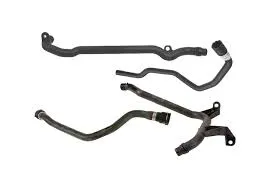Understanding Different Types of Fuel Lines and Their Applications in Vehicles
Dec . 09, 2024 17:05 Back to list
Understanding Different Types of Fuel Lines and Their Applications in Vehicles
Understanding Fuel Line Types A Comprehensive Guide
Fuel lines are critical components of any gasoline- or diesel-powered vehicle or machinery. They transport fuel from the tank to the engine, playing a key role in the vehicle's performance and efficiency. With a variety of fuel line types available, it's essential to understand their differences, applications, and suitability for specific needs. This article explores the common types of fuel lines, their materials, and considerations for selection and maintenance.
Types of Fuel Lines
1. Rubber Fuel Lines Rubber is one of the most commonly used materials for fuel lines due to its flexibility and resistance to various fuels. Rubber fuel lines are generally cheaper and easier to work with, making them a go-to option for many automotive applications. However, they can degrade over time due to exposure to heat, ozone, and certain chemicals found in fuels. Regular inspection and replacement are crucial to avoid leaks.
2. Polyethylene Fuel Lines Polyethylene lines are lightweight and resistant to corrosion and chemical effects. They are often used in automotive applications, especially in setups requiring flexibility and durability. These lines tend to be resistant to the effects of aging and environmental factors, making them a long-lasting choice. However, they may not be suitable for high-pressure applications.
3. Stainless Steel Fuel Lines For those requiring durability and high resistance to various forms of corrosion, stainless steel fuel lines are ideal. These lines can handle high temperatures and pressure, making them suitable for performance vehicles and aircraft. However, they are more expensive and can be more challenging to install, often requiring specific fittings and tools.
4. Nylon Fuel Lines Nylon fuel lines are becoming increasingly popular due to their lightweight nature and resistance to chemical breakdown. They are particularly effective in high-performance vehicles where weight savings are crucial. Nylon fuel lines can withstand significant pressure but need proper protection from UV exposure and physical damage.
5. Aluminum Fuel Lines Aluminum lines offer a balance between weight and durability. They are more rigid than rubber or nylon, making them suitable for applications where movement is limited. Aluminum fuel lines can provide a clean aesthetic when properly polished, and they are less likely to corrode compared to steel. However, they can be prone to cracking if not handled correctly when bending or shaping.
Considerations When Choosing Fuel Lines
fuel line types

When selecting the right fuel line for your application, several factors must be considered
- Fuel Type Different fuels have different chemical properties. Ensure the fuel line material is compatible with the specific fuel you will be using (gasoline, diesel, ethanol blends, etc.). - Pressure Ratings Assess the required pressure rating for your application. High-performance fuel systems require lines that can withstand greater pressure.
- Operating Temperature Consider the range of temperatures the fuel line will encounter. Some materials perform better in extreme heat or cold.
- Installation The ease of installation can vary greatly between line types. Some may require specialized fittings or tools.
- Cost Balance your budget with the required performance and longevity. Sometimes, a higher initial investment in quality lines can lead to long-term savings due to reduced maintenance.
Maintenance and Inspection
Regardless of the type of fuel line you choose, regular maintenance and inspection are essential to ensure safe and optimal performance. Look for signs of wear, corrosion, or leaks. If you detect any issues, it’s crucial to replace the affected components promptly. Routine checks can help prevent costly repairs down the line and ensure the efficiency and safety of your vehicle or machinery.
Conclusion
Choosing the right type of fuel line is vital for ensuring the efficiency and reliability of your vehicle. By understanding the available options and their unique characteristics, you can make an informed decision that best suits your needs. Always prioritize safety by regularly inspecting fuel lines and addressing any potential issues before they escalate.
